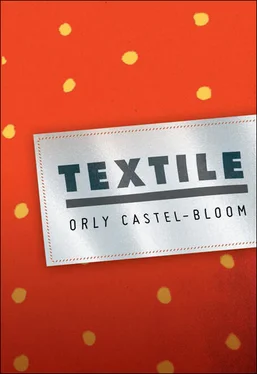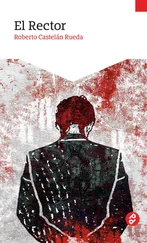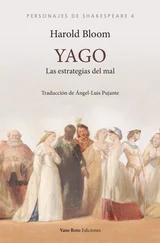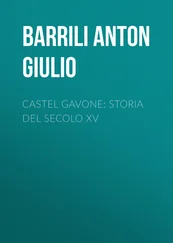She really loved winners. Ever since she was twelve years old and her mother threw a bat mitzvah party for her in a hall in Dizengoff Street, close to where they lived on Arlozorov Street.
But Mandy had eyes in her head. She had received a very conservative education, and it was in her bones. As a woman pushing fifty, she knew that instead of letting Berger feel her body she should keep a safe distance from him, full of hot stones. Gruber talked a lot about the contradiction in the personality of the masseur, the Israeli triathlon champion, and it made her blood boil, but she didn’t say anything, and only asked herself how many more times she would have to hear about the marvelous duality in this interesting person’s personality.
Oren Berger, the dualist, wasn’t crazy about the new neighborhood that had gone up almost overnight, but he had big ambitions to be both an internist and an acupuncturist and a doctor of Chinese medicine, and he needed a lot of patience. He had patience and motivation.
He would begin his rounds in Telba-N. on the corner of Yocheved Bat Miriam and Alexander Penn Street, and go on from there, to all the new streets which were almost all named after poets and writers of Hebrew and Jewish literature. According to what he had found out, they were all big guns in poetry and literature and they were all dead. In the street named after Stefan Zweig, which he found on Google, he had two clients in almost every building, and it was a relatively long street.
On Fridays he would do his weekly round there, and then, at about five, he would go home and shower. On Saturday he would go out with his girlfriend to conquer the Judean Desert on his motorcycle. He never went over sixty miles per hour, even though he could. He could do up to two hundred and twenty, but he didn’t like the resistance from the air.
Gruber thought a lot about Oren Berger, he actually forced himself to study this Baroque character. Sometimes, when Berger was giving him a massage and loosening the knots in his muscles, Gruber thought how lucky he was to have won the Israel Prize, and that he didn’t have to run and swim and cycle for kilometers to do so (Gruber didn’t know how to ride a bicycle, and at the age of fifty it was a little late to learn, never mind all that bullshit about how it’s never too late). At the same time, he envied the young man for his amazing body.
He compared their two statuses and thought that they were more or less on a par, except that people would never call Gruber the past winner of the Israel prize, which gave him an advantage. He would never lose the title or the prize. In this sense he felt like the Frank Sinatra of Israeli science.
Oren Berger was never bored with Gruber. He felt close to Gruber, admired his quick thinking, and thought that to him Gruber could really talk, perhaps because they had both done something for the State of Israel. Therefore he felt it was legitimate to talk to the scientist about whatever was on his mind, and sometimes he would embark on long monologues about his exploits with his biker friends in the desert. Berger and his friends met every Saturday and rode to all the craters they felt like, as if Israel was full of craters.
Once Gruber had even asked him to stop bragging about his amazing life as a twenty-five year old.
A guy who on the previous Saturday had been to the ruins of a Nabatean city, and who had been there the Saturday before that too — how great was that?
By the way, the idea of implanting artificial shoulder blades came to Amanda Gruber from Oren Berger, who in the course of the two massages he had given her before she changed to the hot stones, told her about three of his clients, two white-collar and one from King George Street in Tel Aviv, women whose posture had been transformed by the operation. The one from King George Street walked round the city center with a bare back, proud of the carved peaks of her shoulder blades. It was actually through this woman that Mandy had reached Dr. Carmi Yagoda.
THE CURRENT MASSEUR made mincemeat of Oren Berger. With all due respect, Oren Berger might be a triathlon champion, but this guy was the champ of champs. The Yankee, who looked to be about Gruber’s age, was so outstanding that the scientist soon stopped feeling the wound gaping in his heart ever since the collapse of his T-suit experiment. At last he let go of his personal Titanic and saw things in a general, cosmic, calming light.
“Lavender or sage?” asked the masseur.
“Excuse me?”
“Aroma in the room. Lavender or sage?”
“Sage,” said Gruber to the annoyance of the masseur, who hoped he would go for lavender. Obediently he lit candles and dripped sage oil on the burner.
The American masseur, whose nickname was Hamlet, had majored in comparative literature at Cornell and graduated with honors. His diploma hung on the wall within sight of the treatment bed.
On the opposite wall the visitor from Tel Baruch North made out certificates for the completion of courses in massage and further studies in the field. Three of the diplomas were in Chinese or Japanese.
A third wall was full of hand-shaped hamsa amulets. Gruber estimated their number at about fifty, and he asked Hamlet if he believed in the Evil Eye. Hamlet replied that things often happened in his life which could be attributed to the Evil Eye that someone had given him. Gruber wanted to know if there was a connection between the number of amulets and the amount of bad energy sent him by envious people, and Hamlet said yes, but that was not the reason he kept dozens of amulets on the wall. He was simply keeping them for a very high up person.
“Who?” asked Gruber, and Hamlet ignored the impertinent prying and replied: “The president.”
“The incumbent?” asked Gruber.
“Yes,” said Hamlet without hesitation. “Every time he gets a hamsa from someone in your part of the world, he entrusts it to me. Who knows, maybe one day he’ll have to leave the White House and return to Texas, and then he can take these amulets as a souvenir, and what’s the harm if they incidentally also ward off evil eyes?”
They both fell silent. Hamlet kneaded Gruber’s upper back and said: “Jesus, this isn’t a back, it’s concrete. Don’t you have masseurs in the Middle East?” he asked, completely serious.
“Of course we do,” said Irad Gruber in an insulted tone, “I simply had crazy flights that destroyed my back, and I’m under stress. The stress is killing me,” he added, even though he was beginning to relax.
“Okay,” said Hamlet and poured almond oil into his palms. “You’ll walk out of here soft as a ripe tomato. Do you like tomatoes?”
“Very much,” said Gruber.
“Which kind do you like better? The big ones or the small ones? Do you have the small ones?”
“Yes.”
“Small round ones or small long ones?”
“Both kinds, I guess,” he didn’t like talking in English, and fell silent, apart from grunts of pleasurable and important pain.
And then came the really painful moment. Suddenly, something in his back! He screamed uninhibitedly. Hamlet recoiled.
“GOOD,” said Hamlet regretfully. “They say that over here the taste is less natural, but I don’t know the natural taste, so what do I care.”
“What are you talking about?” asked Gruber, his whole back still hurting.
“The small round tomatoes.”
Gruber couldn’t stand the peace of mind that masseurs tried to convey. It annoyed him to be spoken to as if he was in a monastery.
“One of the times the president was here he brought me a divine basket of fruit.”
He went back to work, concentrating on another area of the back, massaging and oiling, massaging and oiling, he too grunting.
Читать дальше












